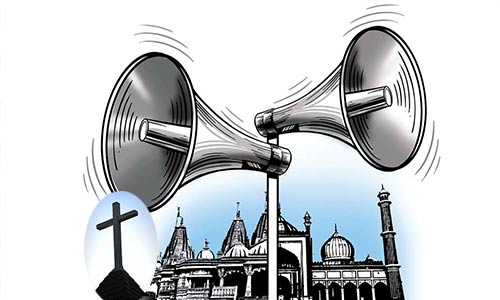The Minister of Islamic Affairs, Call and Guidance Sheikh Dr. Abullatif Bin Abdulaziz Al-Sheikh issued a circular on Sunday to all of the ministry’s branches in the Kingdom’s regions, instructing the employees in mosques to restrict the use of external loudspeakers to calling the faithful to prayer (Adhan) and Iqamat-ul-salah (the second call for congregational prayer)
Furthermore, the volume must not exceed one-third of the full volume of loudspeakers. The minister warned that regulatory measures would be taken against anyone who violates this circular.
This circular issued Monday by the minister comes in the wake of the ministry noticing that external loudspeakers are used during the performing of prayers. This harms patients, old people, and children in the houses in the vicinity of the mosques.
In addition, there is interference in the recitations and rites by the imams of mosques. This causes confusion for the worshipers in the mosques and the residents of houses in the surroundings of these mosques, (especially the sequence of rites?).
The circular is also based on evidence from the Shariah, most important of which is the Prophet’s saying that all worshipers are praying and supplicating to Allah Almighty, so they should not harm or cause inconvenience for one another by loud recitations during prayer.
This is in implementation of the jurisprudential (Fiqhi) principle, “Do not harm others, nor should others harm you.”
The reason is that the imam’s voice during prayer must be heard by all inside the mosque, and there is no need, according to the Shariah for the imam’s voice to be heard in the neighboring houses outside.
Moreover, there is disrespect for the Holy Qur’an when it is recited loudly using external loudspeakers, while no one is listening to and pondering on its verses.
The circular is also in conformity with the religious edict (fatwa) by the late religious scholar Sheikh Muhammad Bin Saleh Al-Othaimeen (May Allah have mercy on his soul) that external loudspeakers should not be used except for Adhan and Iqamat-ul-salah.
The circular is also based on the fatwa by the member of the Council of Senior Scholars and member of the Permanent Committee Dr. Saleh Al-Fowzan, and several other religious scholars.

